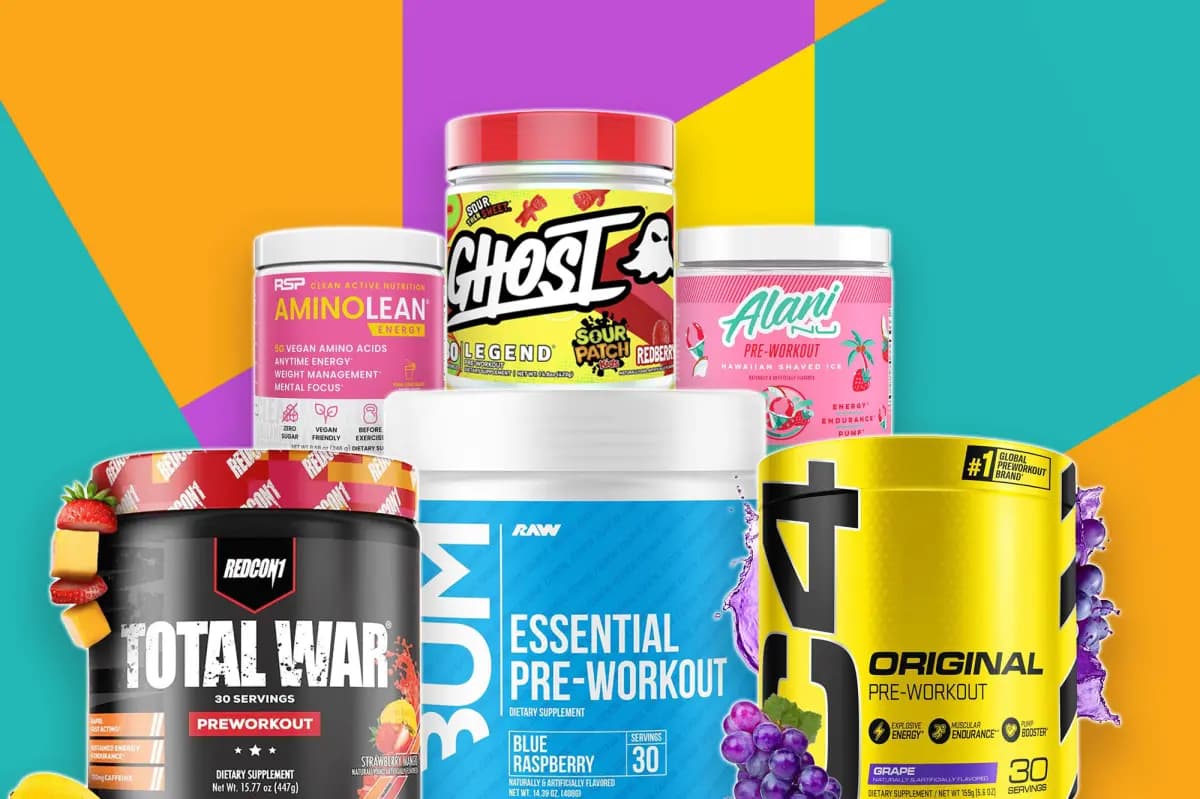What is Inside a Pre-Workout?
Published Date : 2025-01-02

The Role of Pre-Workouts
Pre-workout supplements have become a cornerstone for many fitness enthusiasts, promising to boost energy, enhance performance, and sharpen focus during workouts. But what exactly makes these formulas so effective? Let’s dive into the key ingredients commonly found in pre-workouts, exploring their benefits and how they contribute to optimizing your training sessions.
Key Ingredients in Pre-Workouts
1. Caffeine
Caffeine, a natural stimulant, is one of the most prominent ingredients in pre-workout supplements. As a central nervous system stimulant, caffeine increases energy levels, enhances alertness, and boosts endurance. This can translate into improved performance during both high-intensity and endurance exercises.
- How it works: Caffeine blocks adenosine receptors in the brain, reducing feelings of fatigue and increasing the release of neurotransmitters like dopamine and norepinephrine, which improve focus and energy levels.
- Typical dosage: Most pre-workouts contain between 150-300 mg of caffeine per serving, which is approximately equivalent to 1-3 cups of coffee.
- Benefits: Research suggests that caffeine can delay exercise-induced fatigue, enhance physical endurance, and improve cognitive focus during training sessions. However, it’s essential to monitor your intake to avoid side effects such as jitteriness or insomnia.
2. Beta-Alanine
Beta-alanine is an amino acid that plays a crucial role in reducing muscle fatigue by buffering lactic acid buildup in your muscles during high-intensity workouts.
- How it works: Beta-alanine combines with histidine in your body to form carnosine, a compound that helps neutralize acid in your muscles. This delays the onset of fatigue, allowing you to perform more reps or maintain intensity for longer durations.
- Typical dosage: The recommended daily intake is 2-5 grams, which is often spread across multiple servings throughout the day. Many pre-workouts provide around 2 grams per serving.
- Benefits: Regular use of beta-alanine has been shown to improve performance in activities that last between 60-240 seconds, such as sprinting, weightlifting, and high-intensity interval training (HIIT).
3. Creatine Monohydrate
Creatine is one of the most researched and widely used supplements in the fitness world, renowned for its ability to boost strength and power output.
- How it works: Creatine helps regenerate adenosine triphosphate (ATP), the primary energy source for muscle contractions. By increasing ATP availability, creatine supports short bursts of high-intensity exercise.
- Typical dosage: A daily dose of 3-5 grams is recommended for maintaining elevated muscle creatine levels. Some pre-workouts include creatine, though it’s often beneficial to supplement separately for precise dosing.
- Benefits: Supplementing with creatine has been shown to enhance strength, power, and lean muscle mass, making it a staple for athletes and gym-goers alike.
4. L-Citrulline
L-Citrulline is an amino acid that supports improved blood flow and oxygen delivery to working muscles, enhancing endurance and recovery.
- How it works: L-Citrulline increases nitric oxide production, which dilates blood vessels and improves circulation. This helps deliver essential nutrients and oxygen to your muscles during workouts.
- Typical dosage: The effective dose of L-Citrulline ranges from 6-8 grams. Some pre-workouts include this in the form of citrulline malate, which combines citrulline with malic acid for additional endurance benefits.
- Benefits: Better blood flow can result in an enhanced “pump,” reduced muscle soreness, and improved overall performance during prolonged or intense training sessions.
5. B Vitamins
B vitamins, such as B6 and B12, are essential for energy metabolism and play a supportive role in maintaining stamina and focus during exercise.
- How they work: These vitamins help convert carbohydrates, fats, and proteins into usable energy for your body. They also support the production of red blood cells, which are critical for oxygen transport.
- Typical dosage: Pre-workouts often include these vitamins in amounts that contribute to your daily recommended intake.
- Benefits: By supporting energy production and oxygen delivery, B vitamins can help you sustain intensity during longer workouts.
Choosing the Right Pre-Workout
When selecting a pre-workout supplement, it’s essential to consider your fitness goals, dietary preferences, and tolerance to stimulants like caffeine. Here are a few tips to guide your choice:
- Assess Your Goals:
- If you’re looking to improve strength and power, prioritize formulas with creatine and beta-alanine.
- For better endurance and recovery, choose products high in L-Citrulline and B vitamins.
- Monitor Caffeine Sensitivity:
- If you’re sensitive to caffeine, opt for low-stimulant or stimulant-free versions. These may rely on ingredients like L-Theanine for focus and endurance without the jittery side effects.
- Start with a Small Dose:
- To assess your tolerance, start with half a serving of your pre-workout supplement. Gradually increase the dose as needed, based on how your body reacts.
- Check for Third-Party Testing:
- Look for brands that provide third-party testing to ensure the safety and quality of their products.
Conclusion
Pre-workout supplements can be a valuable tool for enhancing your training sessions and achieving your fitness goals. By understanding the science behind their key ingredients—like caffeine for energy, beta-alanine for endurance, creatine for strength, L-Citrulline for blood flow, and B vitamins for energy metabolism—you can make informed decisions about which supplements align best with your needs.
However, it’s important to use these supplements responsibly. Always consult a healthcare professional if you have any medical conditions or are unsure about trying new products. With the right approach, pre-workouts can give you that extra edge to push your limits and achieve your fitness aspirations.
